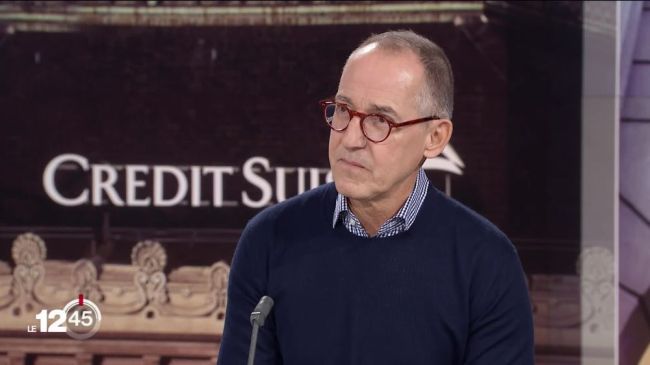What inspired you to start your own financial company after so many years of working at the big names of the financial sector?
The main driver of the decision has been a clear will to be independent, to decide with my partners the direction of the daily business while adhering to a corporate governance framework that we have designed ourselves. Additionally, the strong personal and professional affinities I share with Cédric Mondada and Natalia Souto, my partners, convinced me that the timing and conditions were ideal to embark on this venture. The complementary nature of our expertise was a critical factor that gave us the confidence to move forward.
We each bring a unique skill set to the table. Cédric, with over 20 years of experience in client relationship management, combines outstanding technical competencies with an extensive network of clients, primarily in Israel, the Middle East, and Europe. Natalia is one of the most capable and efficient assistant managers I have ever worked with; she is highly versatile, with a diverse and robust understanding of the financial industry. As for myself, I have over 30 years of experience in asset allocation, top-down analysis, and geostrategic insights. My ability to simplify and explain market trends clearly to clients has proven invaluable in maintaining strong relationships with individuals from all backgrounds. Together, our complementary skills create a well-rounded and dynamic team to serve our clients effectively.
Can you share the story of how the idea for Genvil came about and the process of bringing it to life?
The name Genvil is a contraction of Genève and Villars, reflecting the locations where Cédric and I reside. It also captures our contrasting personalities – I am more of an urbanite, while Cédric is drawn to the mountains. This duality reflects the balance we strive for in our professional collaboration.The concept for Genvil came to fruition during a lunch in a Lebanese restaurant in Geneva in August 2023. Over the course of that meal, Cédric and I both realized that we were ready to take the plunge and create our own company. From that point, it was a matter of patience, careful planning, and engaging the right people to support us through the various stages of the process. The journey was as much about the practicalities as it was about the shared vision and commitment we brought to the table. As I was free from any professional obligations, I launched the process with the aim to offer wealth management services to my limited customers base.
What sets Genvil apart from other financial companies in terms of investment strategy or philosophy? And who are your target clients?
Genvil was not built from scratch. Cédric in particular and I both brought with us an established clientele developed over the course of our careers. Our clients are geographically diverse, spanning Israel, Dubai, Europe, and Switzerland, and they collectively represent several hundreds of millions CHF in assets under management (AUM). This existing client base was instrumental in our decision to go independent, as their trust and support reinforced our confidence in this move.
In terms of investments, our first priority is to ensure the satisfaction of these loyal clients who chose to follow us to Genvil. Our investment strategy and asset selection are tailored to their proven needs, shaped by years of experience. We primarily employ a top-down approach to determine allocation across different risk profiles, a methodology I have refined over 30 years.
Cédric and I are deeply committed to transparent communication with our clients. Whether our investment decisions prove right or wrong, we make it a point to explain the rationale behind them. This transparency, coupled with our top-down approach, allows clients to clearly understand how performance is generated within their portfolios.
When selecting investment vehicles, we adopt an agnostic approach, with a focus on liquidity to ensure alignment with client preferences. This does not mean we exclude private assets; however, these are considered on a case-by-case basis and are not included in our global strategic allocation. We also incorporate alternative investments, with liquidity rules as a prerequisite, and have selected a few «liquid» hedge funds as part of our offering.
Starting a financial company in today’s complex market environment can be challenging. What were the biggest obstacles you faced, and how did you overcome them?
We tackled the challenges with the help of the right people and their specialized expertise. As a small company, Genvil is keenly aware of its strengths, which allows us to focus on what we excel at while outsourcing other functions to highly competent partners.
The regulatory environment has become increasingly complex, and compliance is essential for long-term success. Navigating these requirements was critical during the establishment of Genvil. Partnering with Compliance Angels proved invaluable; their support enabled us to secure Finma authorization in an impressive two months. The process was smoother than anticipated, though it required a great deal of patience and trust in the expertise of others.
This experience reinforced several key lessons: the importance of delegating, the virtue of patience, and the need for humility in acknowledging the limits of our expertise. These lessons continue to guide us as we grow. As an example of this delegation of expertise, Compliance Angels will continue to serve as our compliance and risk partner, ensuring that everything we do at Genvil adheres to all relevant regulations.
What are your short-term development targets for Genvil over the next year?
Our immediate focus is on stabilizing our operations and further strengthening trust with our clients and partners. This involves maintaining the banking relationships that our clients already have, which span over 14 banks in various countries, including Switzerland, Dubai, Luxembourg, and Israel. Major partners include UBP, UBS, Pictet, and Julius Baer.
By the end of 2025, we aim to ensure that our operations run smoothly and to identify any necessary adjustments to our organizational structure to support medium-term growth. We are deliberately cautious about prioritizing growth in the short term, as doing so could compromise the foundation we are working to establish.
Looking ahead, what is your vision for Genvil’s growth and role in the financial industry over the next five to ten years?
Our long-term vision is to build a robust organization with solid fundamentals. This foundation would open the door to external growth opportunities, such as welcoming new wealth managers into the company, provided they embrace our vision and values. To achieve this, we must establish Genvil as an attractive workplace that upholds strong shared values and uncompromising corporate governance.
How do you plan to adapt to emerging trends and challenges in the financial industry to ensure Genvil’s long-term success?
Our strategy is twofold: leverage our strengths while mitigating the impact of any weaknesses, and maintain a relentless focus on client satisfaction. We firmly believe that open, two-way communication with our clients is the key to evolving our services in line with their needs. Ultimately, their satisfaction is our highest priority.
What are your expectations for the key drivers of financial markets in 2025, and how will Genvil position its clients to capitalize on them?
The key drivers we anticipate for 2025 include inflation, long-term interest rates, and earnings per share (EPS). Inflation will be crucial, as the disinflationary trend of the past 15 months faces potential challenges. Diverging trends among major economic blocs could also emerge.
Global growth is likely to remain stable, but inflation could influence long-term interest rates, particularly in the US. A scenario where US 10-year Treasury yields reach 4.75%-5.00% is plausible, potentially exerting pressure on equity valuations. While we expect EPS to grow by around 10%, in line with our economic outlook, rising long-term rates may introduce greater market volatility.
To address these risks, we hedge equity exposure with alternative investments and strategic gold positions, which also serve as a buffer against geopolitical uncertainties. While we do not foresee the end of the current equity bull market, we anticipate a more volatile and less linear trend in 2025.
What defines the «Geneva feel» in financial business, and how does it differ from Zurich’s approach?
The «Geneva feel» is deeply rooted in the city’s private banking tradition, which spans over 200 years. It prioritizes long-term, personalized relationships with clients, characterized by tailored investment solutions and a human touch. Two-way communication is central to this philosophy, ensuring that each client’s unique needs are met. In contrast, Zurich’s financial industry is often associated with a more institutional framework, shaped by the development of wealth management divisions within major Swiss banks since the late 19th century.
How does Genvil integrate Geneva’s emphasis on discretion, personalized service, and international focus into its operations, and how does this compare to Zurich’s often more structured financial culture?
Discretion, personalized service, and an international outlook are integral to Genvil’s business model. From the outset, Cédric and I prioritized these elements while ensuring flexibility to cater to each client’s unique preferences. For example, clients are presented with multiple options for selecting their booking center, rather than having a decision imposed on them.
While Zurich’s financial culture tends to be more structured, Genvil embodies the Geneva ethos of adaptability and attentiveness. Our approach ensures that every decision aligns with the client’s best interests, reflecting our commitment to personalized service and discretion.
After more than 30 years of working with some of the most prestigious financial institutions in Geneva, François Savary has joined forces with two partners, Cédric Mondada and Natalia Souto, to launch Genvil. The three former Prime Partners executives founded the new company with the aim of becoming a boutique where every client is truly listened to and understood. François Savary is one of the most prominent economists from French-speaking Switzerland.


